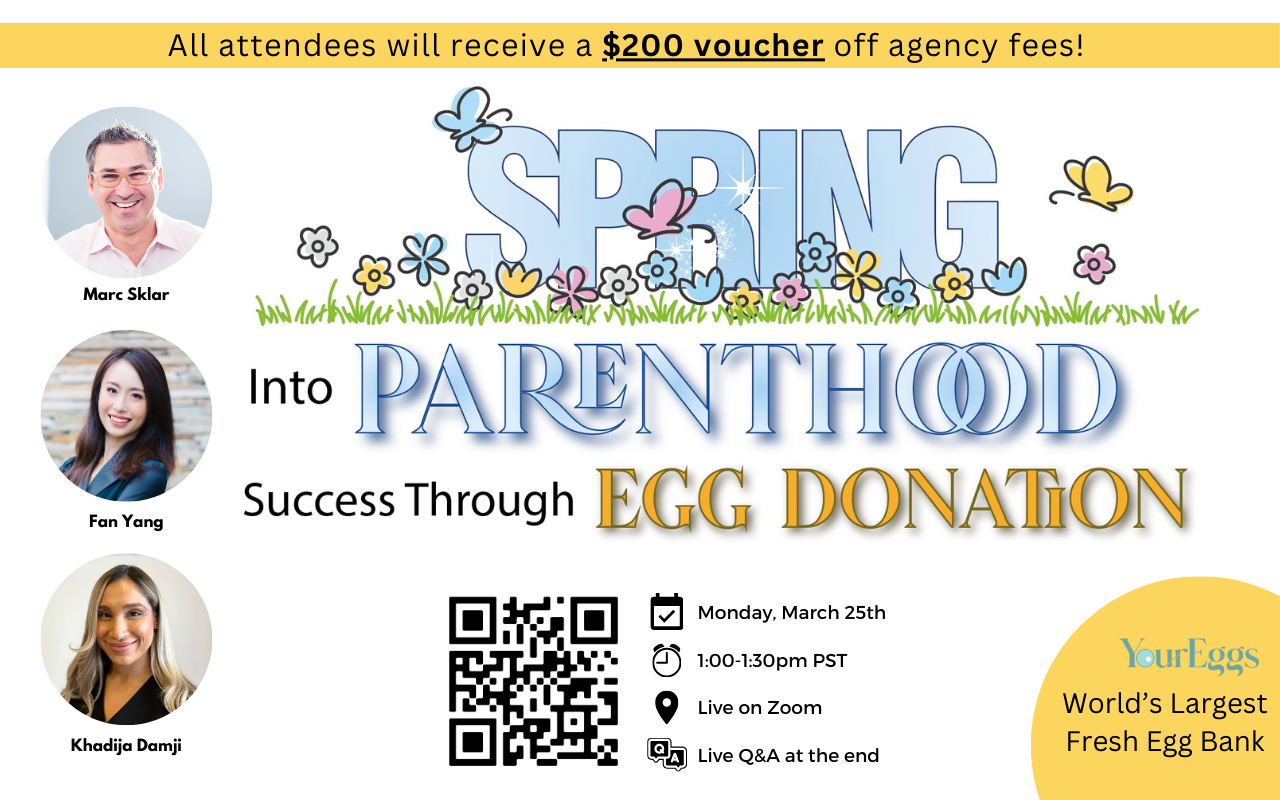Embarking on the journey of egg donation can be both exhilarating and daunting. For many hopeful parents, selecting the right egg donor is a pivotal decision that can shape their dreams of parenthood. This comprehensive guide aims to simplify the process, offering valuable insights and practical tips for navigating the complexities of choosing an egg donor. From understanding the medical and genetic backgrounds to evaluating personal qualities and preferences, every aspect plays a crucial role in this deeply personal journey. Whether you’re considering egg donation for the first time or seeking to refine your approach, this guide will equip you with the knowledge and confidence needed to make informed choices. Join us as we delve into the essential factors that will help you find the perfect match, ensuring that your path to parenthood is as smooth and rewarding as possible.
What is Egg Donation?
Egg donation is a medical procedure in which a woman, known as the egg donor, provides one or several eggs (oocytes) to another individual or couple to help them conceive a child. This process is typically part of assisted reproductive technology (ART) and is often used when a woman cannot produce viable eggs on her own due to various medical conditions, age, or genetic concerns. Egg donation has become an invaluable option for many individuals and couples, offering hope and the possibility of building a family.
The procedure involves the donor undergoing hormonal treatments to stimulate her ovaries to produce multiple eggs. Once the eggs are mature, they are retrieved through a minor surgical procedure. These eggs are then fertilized with sperm in a laboratory setting, creating embryos that can be transferred to the intended mother’s uterus or a gestational carrier. The success of this process depends on various factors, including the quality of the eggs, the health of the sperm, and the overall reproductive health of the recipient.
Egg donation is a highly regulated and ethical practice, ensuring that both donors and recipients are protected and informed. Donors undergo rigorous medical and psychological screening to ensure they are suitable candidates for the process. This screening helps minimize potential risks and maximizes the chances of a successful pregnancy. For recipients, egg donation offers the opportunity to experience pregnancy and childbirth, creating a genetic bond with the child through the sperm donor or partner.
The Importance of Choosing the Right Egg Donor
Selecting the right egg donor is crucial for intended parents as it significantly impacts the potential success of the pregnancy and the overall well-being of the child. The chosen donor’s genetic material will contribute to half of the child’s DNA, making the selection process a deeply personal and important decision. Parents must consider various factors to ensure they find a donor who aligns with their values, expectations, and desired traits.
One of the primary considerations is the donor’s medical history. A thorough review of the donor’s health background can help identify any potential genetic disorders or medical conditions that could be passed on to the child. Additionally, understanding the donor’s family medical history can provide insights into potential long-term health risks. This information is critical in making an informed decision and ensuring the best possible outcome for the child.
Another essential factor is the donor’s personal characteristics and attributes. Many parents look for donors with specific physical traits, educational backgrounds, talents, or interests that resonate with their own. While these preferences are unique to each family, they often reflect the desire to create a sense of connection and continuity with the child. Emotional and psychological compatibility is also important, as it can influence the overall experience and satisfaction with the egg donation process.
Types of Egg Donors: Anonymous vs. Known
When considering egg donation, intended parents must decide between anonymous and known egg donors. Each option has its advantages and potential challenges, and the choice ultimately depends on the preferences and comfort levels of the individuals involved.
Anonymous egg donation involves selecting a donor who remains unidentified to the intended parents. The donor’s identity is kept confidential, and communication between donors and recipients is typically managed through an egg donation agency or fertility clinic. This approach offers privacy and can simplify the legal and emotional aspects of the process. Intended parents may receive non-identifying information about the donor, such as physical attributes, educational background, and medical history, to help them make their decision.
Known egg donation, on the other hand, involves choosing a donor who is personally known to the intended parents, such as a friend or family member. This option can offer a sense of familiarity and trust, as the intended parents have a direct relationship with the donor. Known donations can also provide the child with the opportunity to have a connection with their genetic origins. However, this approach may involve more complex legal and emotional considerations, as the dynamics of existing relationships can be affected.
Both anonymous and known egg donations have their merits, and the decision should be made based on the specific needs and circumstances of the intended parents. Consulting with a fertility specialist or counselor can help navigate the pros and cons of each option, ensuring that the chosen path aligns with the family’s goals and values.
Factors to Consider When Selecting an Egg Donor
Choosing the right egg donor involves evaluating multiple factors to ensure the best match for the intended parents. These considerations include medical history, physical characteristics, personality traits, and lifestyle choices, among others.
One of the first and most critical factors to assess is the donor’s medical history. This includes a thorough review of the donor’s health records, genetic screening results, and family medical history. Understanding the donor’s health background helps identify any potential genetic disorders or medical conditions that could be passed on to the child. Additionally, it provides insight into the donor’s overall health and potential fertility, which can impact the success of the egg donation process.
Physical characteristics are another important consideration for many intended parents. Traits such as height, eye color, hair color, and complexion often play a role in the selection process. While these attributes are subjective and vary from person to person, many parents seek donors who resemble themselves or their partner to create a sense of familial continuity. It’s essential to remember that physical traits are just one aspect of the donor selection process and should be balanced with other important factors.
Personality traits and lifestyle choices are also significant when selecting an egg donor. Intended parents may look for donors with specific qualities, such as intelligence, creativity, or athleticism, that align with their own values and aspirations. Additionally, understanding the donor’s lifestyle choices, such as diet, exercise habits, and hobbies, can provide a more comprehensive picture of the donor’s overall well-being. This holistic approach ensures that the chosen donor not only meets the intended parents’ expectations but also contributes to the best possible outcome for the child.
The Egg Donation Process: A Step-by-Step Overview
The egg donation process involves several stages, each designed to ensure the safety and success of both the donor and the intended parents. Understanding these steps can help demystify the process and provide clarity for those embarking on this journey.
The first step in the egg donation process is the selection and screening of the donor. Potential donors undergo a comprehensive evaluation that includes medical examinations, genetic testing, and psychological assessments. This screening ensures that the donor is in good health and free from any conditions that could affect the donation’s success. Once a suitable donor is identified, legal agreements are drafted to outline the rights and responsibilities of all parties involved.
Next, the donor begins a cycle of hormonal treatments to stimulate her ovaries to produce multiple eggs. This process, known as ovarian stimulation, involves daily injections of fertility medications for about 10-14 days. During this period, the donor is closely monitored through blood tests and ultrasounds to track the development of the eggs. Once the eggs are mature, a final injection is administered to trigger ovulation.
The egg retrieval procedure follows, typically performed under light sedation or anesthesia. Using a fine needle, the eggs are collected from the donor’s ovaries through the vaginal wall in a minimally invasive procedure. The retrieved eggs are then fertilized with sperm in a laboratory setting to create embryos. These embryos can be transferred to the intended mother’s uterus or a gestational carrier in a subsequent cycle. Throughout the process, both the donor and the intended parents receive support and guidance from fertility specialists to ensure a smooth and successful experience.
Legal and Ethical Considerations in Egg Donation
Egg donation involves various legal and ethical considerations that must be carefully addressed to protect the rights and well-being of all parties involved. These considerations include informed consent, legal agreements, and the ethical implications of the donation process.
Informed consent is a fundamental aspect of egg donation. Both the donor and the intended parents must be fully aware of the medical, legal, and emotional aspects of the process before proceeding. This involves providing detailed information about the procedures, potential risks, and possible outcomes. Ensuring that all parties have a clear understanding of what to expect helps build trust and transparency throughout the donation journey.
Legal agreements are another critical component of egg donation. These contracts outline the rights and responsibilities of the donor and the intended parents, including issues related to parental rights, anonymity, and financial compensation. Legal counsel is often required to draft and review these agreements to ensure that they comply with relevant laws and regulations. Addressing legal matters upfront helps prevent misunderstandings and disputes, providing a clear framework for the donation process.
Ethical considerations also play a significant role in egg donation. Issues such as the commercialization of human eggs, the welfare of the donor, and the long-term implications for the child must be carefully considered. Ethical guidelines and regulations are in place to ensure that the donation process is conducted with respect, dignity, and fairness. These guidelines help maintain the integrity of the practice and protect the interests of all parties involved.
Emotional and Psychological Aspects of Egg Donation
The journey of egg donation is not only a medical process but also an emotional and psychological experience for both donors and intended parents. Understanding and addressing the emotional aspects can help ensure a positive and supportive experience for everyone involved.
For intended parents, the decision to pursue egg donation can be accompanied by a range of emotions, including hope, excitement, anxiety, and fear. The process may evoke feelings of loss or grief, especially if it follows unsuccessful attempts at conception. It is essential for intended parents to seek emotional support from counselors, support groups, or mental health professionals to navigate these complex emotions. Open communication with partners and loved ones can also provide valuable support and understanding.
Egg donors may also experience a variety of emotions throughout the donation process. While many donors feel a sense of fulfillment and pride in helping others achieve their dreams of parenthood, they may also encounter feelings of anxiety, stress, or uncertainty. Psychological screening and counseling are integral parts of the donor evaluation process, ensuring that donors are emotionally prepared for the experience. Ongoing support from the fertility clinic and access to counseling services can help donors cope with any emotional challenges that arise.
Building a strong support system is crucial for both donors and intended parents. This support network can include family, friends, healthcare professionals, and online communities. Sharing experiences and connecting with others who have undergone similar journeys can provide comfort, encouragement, and practical advice. Recognizing and addressing the emotional and psychological aspects of egg donation fosters a positive and empowering experience for all involved.
Questions to Ask About Potential Egg Donors
When selecting an egg donor, asking the right questions can provide valuable insights and help ensure a good match. Here are some important questions to consider during the evaluation process:
1. What is their medical history and family medical background? Understanding the donor’s health history, including any genetic conditions or chronic illnesses in the family, is crucial for assessing potential risks and ensuring the health of the child.
2. What motivated them to become an egg donor? Learning about the donor’s motivations can provide insight into their commitment and willingness to participate in the process. It can also help build a sense of connection and trust between the donor and the intended parents.
3. What are their physical characteristics and personal attributes? Discussing the donor’s physical traits, educational background, hobbies, and interests can help determine if they align with the intended parents’ preferences and values.
4. What is their lifestyle like? Inquiring about the donor’s diet, exercise habits, and overall lifestyle can provide a comprehensive understanding of their health and well-being. Healthy lifestyle choices can positively impact the quality of the donated eggs.
5. Have they undergone egg donation before? If the donor has previous experience with egg donation, it can offer valuable insights into their ability to produce viable eggs and their understanding of the process. Experienced donors may also feel more comfortable and confident throughout the journey.
These questions serve as a starting point for meaningful conversations about potential egg donors. Open and honest communication is essential to ensure that you feel comfortable and confident in your decision. Consulting with a fertility specialist or counselor can also provide additional guidance and support during the evaluation process.
Resources for Finding Egg Donors
Finding the right egg donor requires access to reliable resources and support. Several avenues can help intended parents connect with potential donors and navigate the selection process.
Fertility clinics and egg donation agencies are primary resources for finding egg donors. These organizations have established databases of pre-screened donors, providing detailed profiles that include medical histories, physical characteristics, and personal attributes. Working with a reputable clinic or agency ensures that the donors have undergone rigorous screening and that the process adheres to legal and ethical standards. Fertility specialists can also offer personalized guidance and support throughout the journey.
Online platforms and databases are another valuable resource for finding egg donors. Many websites offer extensive donor profiles, allowing intended parents to search for donors based on specific criteria. These platforms often provide detailed information about the donors’ backgrounds, health histories, and personal attributes, helping parents make informed decisions. It is essential to verify the credibility and reputation of these online resources to ensure a safe and reliable process.
Support groups and online communities can also be helpful in finding egg donors. Connecting with others who have gone through the egg donation journey can provide valuable recommendations and insights. These communities offer a supportive environment where intended parents can share experiences, ask questions, and seek advice. Building a network of support can make the process less daunting and more manageable.
Conclusion: Making an Informed Decision
Embarking on the journey of egg donation is a significant and deeply personal decision that requires careful consideration and preparation. By understanding the medical, legal, ethical, and emotional aspects of the process, intended parents can make informed choices that align with their values and goals.
Choosing the right egg donor involves evaluating various factors, including medical history, physical characteristics, personality traits, and lifestyle choices. Whether opting for an anonymous or known donor, it is essential to prioritize open communication, trust, and compatibility. Asking thoughtful questions and seeking guidance from fertility specialists and counselors can help ensure a positive and successful experience.
Utilizing reliable resources, such as fertility clinics, egg donation agencies, and online platforms, can facilitate the process of finding a suitable donor. Building a strong support network and accessing emotional and psychological support are also crucial for navigating the complexities of egg donation.
Ultimately, the goal is to create a path to parenthood that is smooth, rewarding, and fulfilling. By approaching the journey with knowledge, confidence, and compassion, intended parents can make decisions that lead to the realization of their dreams of building a family.
YourEggs is dedicated to making intended parents’ dreams come true. We are a leading egg donation bank with well qualified doctors and staff. We offer a database of over 2,000 egg donors of all backgrounds and ethnicities so there are options for everyone. Please contact us today to get started!
Donors: 858-815-5444
Intended Parents: 858-568-6210
info@youreggs.com





